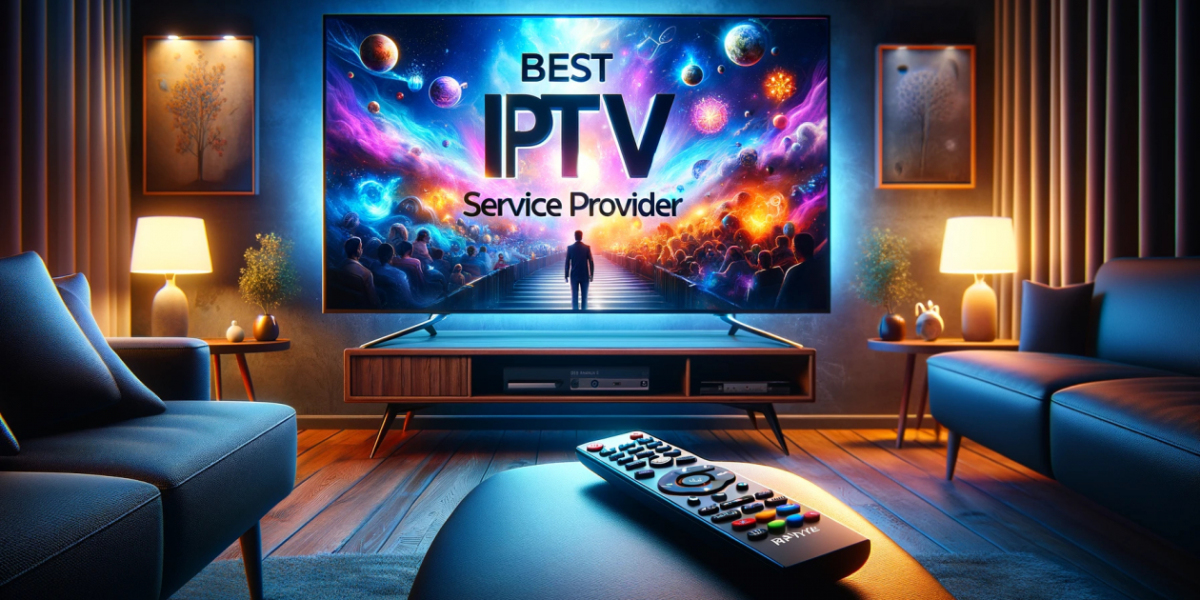What is IPTV?
IPTV stands for Internet Protocol Television, which is a method of delivering television content over the internet rather than traditional satellite or cable methods. With IPTV, television signals are transmitted via internet protocols, enabling users to stream live TV, on-demand content, and video-on-demand (VOD) through their internet connection.
Unlike conventional broadcasting, which sends signals through satellite or cable lines, IPTV uses broadband internet connections to stream content directly to a device such as a smart TV, smartphone, tablet, or computer.
How Does IPTV Work?
IPTV operates through an internet connection using the IP protocol to deliver media content. Here’s how it works:
- Content Source: IPTV services acquire content from various sources like TV stations, production houses, or online streaming platforms.
- Content Encoding: The content is then encoded into a digital format that is compatible with internet transmission.
- Streaming Server: The encoded content is stored on servers and streamed over the internet.
- User Device: The user’s device connects to the IPTV service provider's servers, which then send the stream via internet packets to the user’s device.
The content can be streamed in real-time (live television) or on-demand, depending on the service.
Types of IPTV Services
IPTV services come in three main types, each catering to different needs and preferences:
Live IPTV: This service allows users to watch live television broadcasts, just like traditional TV, but streamed via the internet. Live IPTV typically includes a range of channels, such as news, sports, and entertainment.
Time-Shifted IPTV: This type of service enables users to watch previously aired content. It is similar to a DVR (Digital Video Recorder) and allows users to pause, rewind, or forward live TV shows or movies at their convenience.
Video on Demand (VOD): VOD services allow users to select and watch specific movies, TV shows, or videos at any time. The content is stored in the IPTV provider’s library and can be streamed on-demand.
Benefits of IPTV
IPTV has several advantages over traditional television services. These benefits make IPTV an increasingly popular choice among consumers:
1. Flexibility and Convenience
With IPTV, you’re no longer tied to rigid schedules. Whether you’re watching live TV or on-demand content, you can do so on your own terms, using your preferred device. As long as you have a stable internet connection, you can enjoy content anywhere and anytime.
2. Wide Range of Content
IPTV services typically offer an extensive range of content options, including international channels, sports programming, movies, documentaries, and more. Additionally, there are usually options to customize subscriptions to suit individual preferences.
3. High-Quality Streaming
IPTV is often associated with superior streaming quality. With the advent of high-definition (HD), 4K, and even 8K content, IPTV services can provide stunning picture quality, provided you have the right internet bandwidth.
4. Interactive Features
Many IPTV providers offer additional interactive features, such as live chat, social media integration, and multi-screen support, providing an enhanced viewing experience. You can interact with content in real-time, whether it’s voting in polls, chatting with other viewers, or accessing bonus material.
5. Cost-Effectiveness
IPTV can often be a more affordable option compared to traditional cable or satellite television. Since it operates over the internet, there is no need for expensive infrastructure like satellite dishes or long-distance cable lines, which can make it a more budget-friendly choice.
Choosing the Right IPTV Service Provider
Selecting the best IPTV service provider requires careful consideration. Here are some factors to keep in mind:
Content Library: Ensure that the service offers a broad range of content that suits your needs. This includes channels, movies, shows, and on-demand options.
Pricing Plans: Compare subscription costs and what’s included in each plan. Some providers may offer tiered pricing based on channel access, quality, or additional features.
Reliability: Check for consistent service quality. The best IPTV services have minimal downtime, buffering, and are known for their high availability.
Compatibility: Make sure the service is compatible with the devices you plan to use. Many IPTV providers support smart TVs, gaming consoles, PCs, smartphones, and tablets.
Customer Support: Reliable customer support is crucial. Look for providers that offer timely and efficient assistance if any issues arise.
IPTV vs. Traditional Cable or Satellite TV
Cost
- IPTV tends to be more affordable since it uses your existing internet connection, while cable/satellite TV requires additional equipment and infrastructure.
Customization
- With IPTV, you have more control over what you watch and when. You can opt for on-demand content or choose packages that suit your viewing habits. In contrast, traditional TV services often come with preset packages and less flexibility.
Technology
- IPTV provides access to the latest technology, including streaming in HD, 4K, and multi-screen support, whereas cable and satellite TV services are generally limited to lower resolutions and lack interactive features.
Availability
- While IPTV is available anywhere with a strong internet connection, traditional TV services often have geographical limitations based on the service provider’s coverage area.
The Future of IPTV
As internet speeds continue to improve, IPTV is poised to become even more widespread. The increasing adoption of 5G technology, which promises faster internet speeds, will also play a key role in enhancing the IPTV experience. With cloud-based technology, IPTV services are expected to offer more personalized experiences, such as AI-driven content recommendations and seamless multi-device streaming.
In conclusion, IPTV is transforming the way we watch television, offering greater flexibility, quality, and content variety compared to traditional television services. As internet infrastructure continues to improve globally, IPTV will likely continue to grow in popularity, revolutionizing the entertainment industry for years to come.
Conclusion:
Whether you’re seeking a more flexible TV experience, better quality streaming, or a more cost-effective alternative to traditional TV, IPTV presents a compelling solution. By embracing this technology, consumers are empowered to customize their entertainment experience in ways that were previously not possible.








